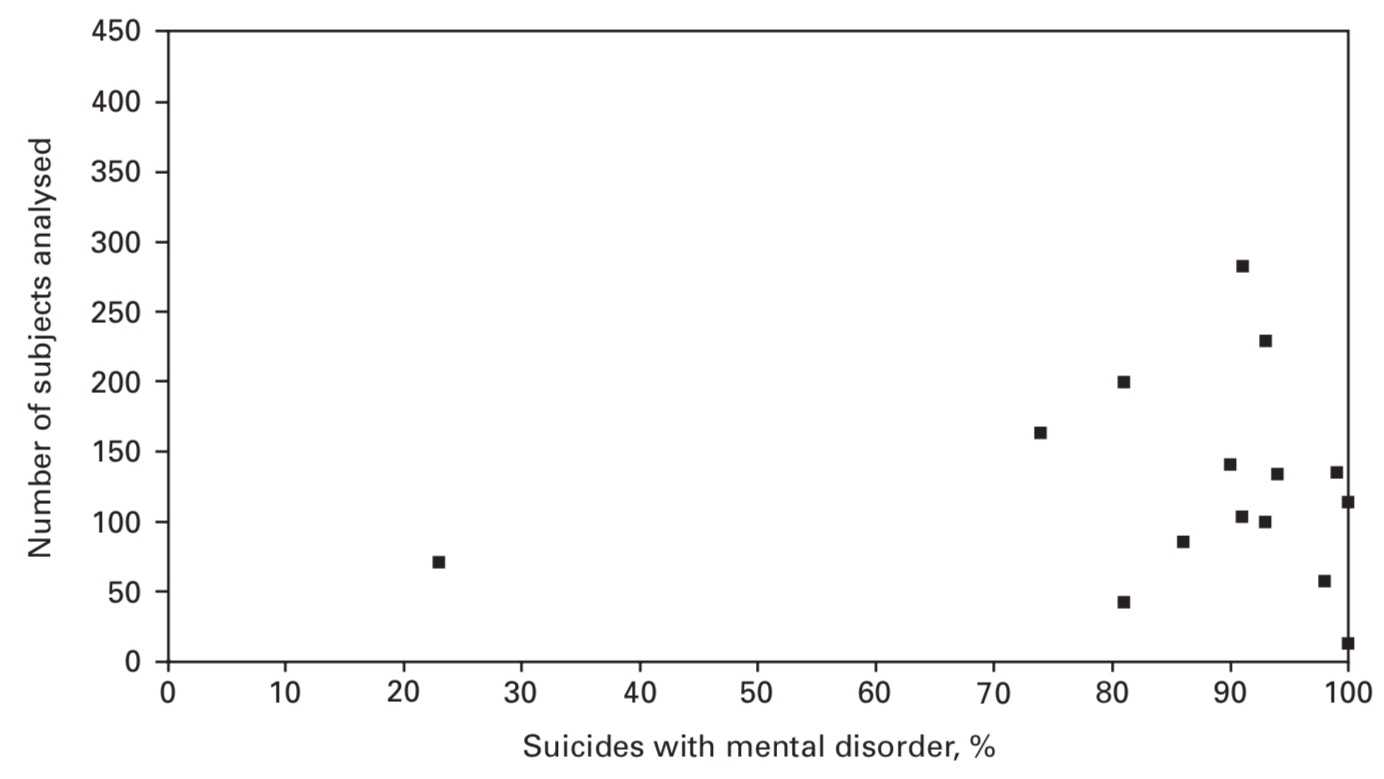Click here and press the right key for the next slide (or swipe left)
also ...
Press the left key to go backwards (or swipe right)
Press n to toggle whether notes are shown (or add '?notes' to the url before the #)
Press m or double tap to slide thumbnails (menu)
Press ? at any time to show the keyboard shortcuts

Q
What, if anything, is ethically wrong with suicide?
Is suicide intrinsically ethically impermissible?
McMahan gives a negative answer:
‘There are [...] no good reasons for thinking that suicide [is] [intrinsically] wrong—that is, wrong for reasons other than those concerned with merely contingent effects’
McMahan 2002, p. 463
preliminary : law
‘competent patients have been permitted to refuse even life-saving treatment ‘for any reason, rational or irrational, or for no reason at all’ (Re MB [1997], para. 16)’
Freyenhagen & O’Shea, 2013 p. 54
Sectioning under the Mental Health Act, 1983
Approx 95% of suicides suffer from mental disorders diagnosed by psychological autopsy; and the others may suffer subclinical, or undiagnosed, mental disorders.
preliminary : known risk factors
- mental disorders
- previous suicide attempts
- social isolation
- physical illness
- unemployment
- family conflict
van Order et al, 2010 table 1
preliminary : why?
the Interpersonal Theory (van Orden et al, 2010)
1. Suicidal desire and suicidal capability are distinct.
2. Suicidal desire is characteristically caused by thwarted belongingness and perceived burdensomeness.
3. Suicidal capability is built through experiences which habituate to pain and events which reduce fear of death.
Never trust a philosopher
‘Most people who desperately want to die are capable of killing themselves.’
McMahan, 2002 p. 460
(This is not merely false: the converse is true, fortunately.)
Never trust a philosopher
‘Most people who desperately want to die are capable of killing themselves.’
McMahan, 2002 p. 460
(This is not merely false: the converse is true, fortunately.)

Cavanagh et al, 2003 figure 1
Q
What, if anything, is ethically wrong with suicide?
Is suicide intrinsically ethically impermissible?

An Inalienable Right to Life
1. In order for me to kill myself, I must renounce my right to life.
An entitlement ‘not to be killed or allowed to die
human right?
claim right
1. In order for me to kill myself, I must renounce my right to life.
But:
2. The right to life is inalienable.
Therefore:
3. I cannot rightly renounce my right to life.
Therefore:
4. Therefore I cannot rightly kill myself, nor may you help.
1. The right to life is discretionary, not mandatory.
Therefore:
2. In suicide I am exercising the right, not renouncing it.
Never trust a philosopher
‘Another way in which people frequently articulate their opposition to killing is to claim that it violates the victim’s right to life.
But, as many rights theorists have pointed out, rights can be waived.
[...] Hence suicide and voluntary euthanasia cannot be objectionable on the ground that they violate the right to life’
McMahan, 2002 p. 464
Never trust a philosopher
‘Another way in which people frequently articulate their opposition to killing is to claim that it violates the victim’s right to life.
But, as many rights theorists have pointed out, rights can be waived.
[...] Hence suicide and voluntary euthanasia cannot be objectionable on the ground that they violate the right to life’
McMahan, 2002 p. 464
Is the right to life discretionary or mandatory?
Feinberg: ‘paternalist’
Unlike Feinberg, do not mistake an insult for an argument!
Q
What, if anything, is ethically wrong with suicide?
Is suicide intrinsically ethically impermissible?
Yes, if the right to life is mandatory.
Maybe not, if the right to life is discretionary.
opinions
It’s not about you.

conclusion
Q
What, if anything, is ethically wrong with suicide?
Is suicide intrinsically ethically impermissible?
Feinberg, 1978
Yes, if the right to life is mandatory.
Maybe not, if the right to life is discretionary.
McMahan, 2002 : no (you may rationally judge it will make your life better)
[coming next]:
Velleman, 1999, 2008 : suicide is ethically impermissible if done for the reason that it will make your life better